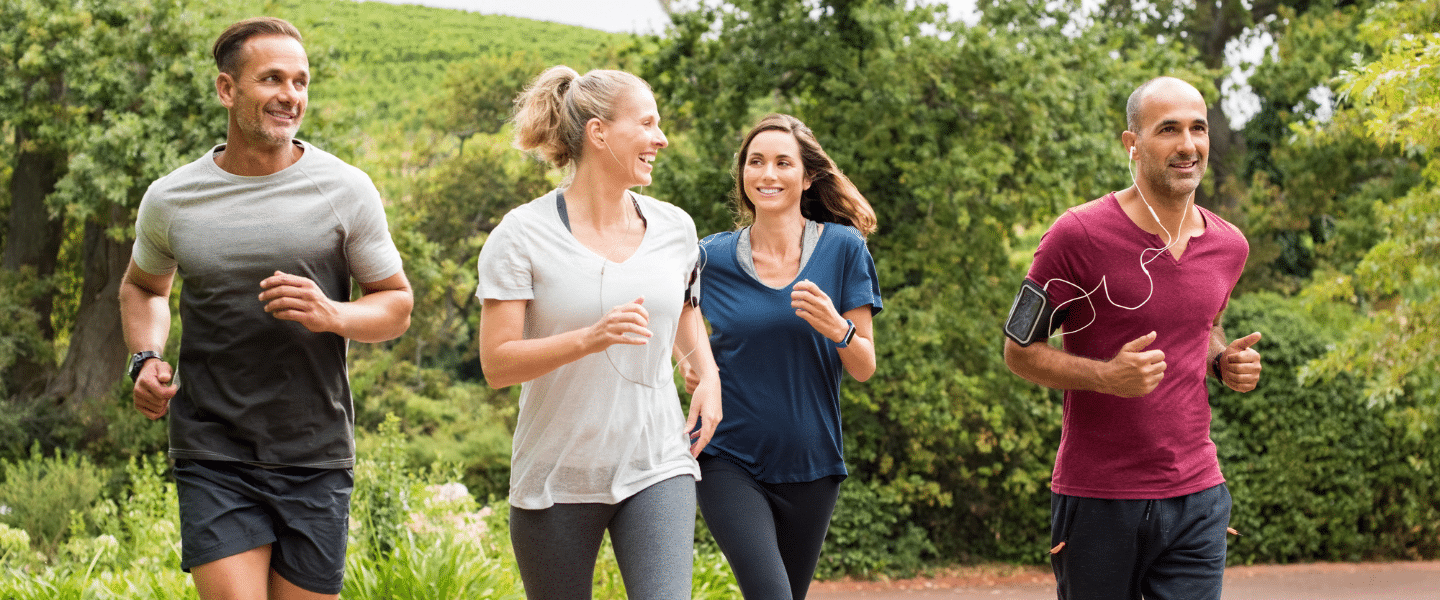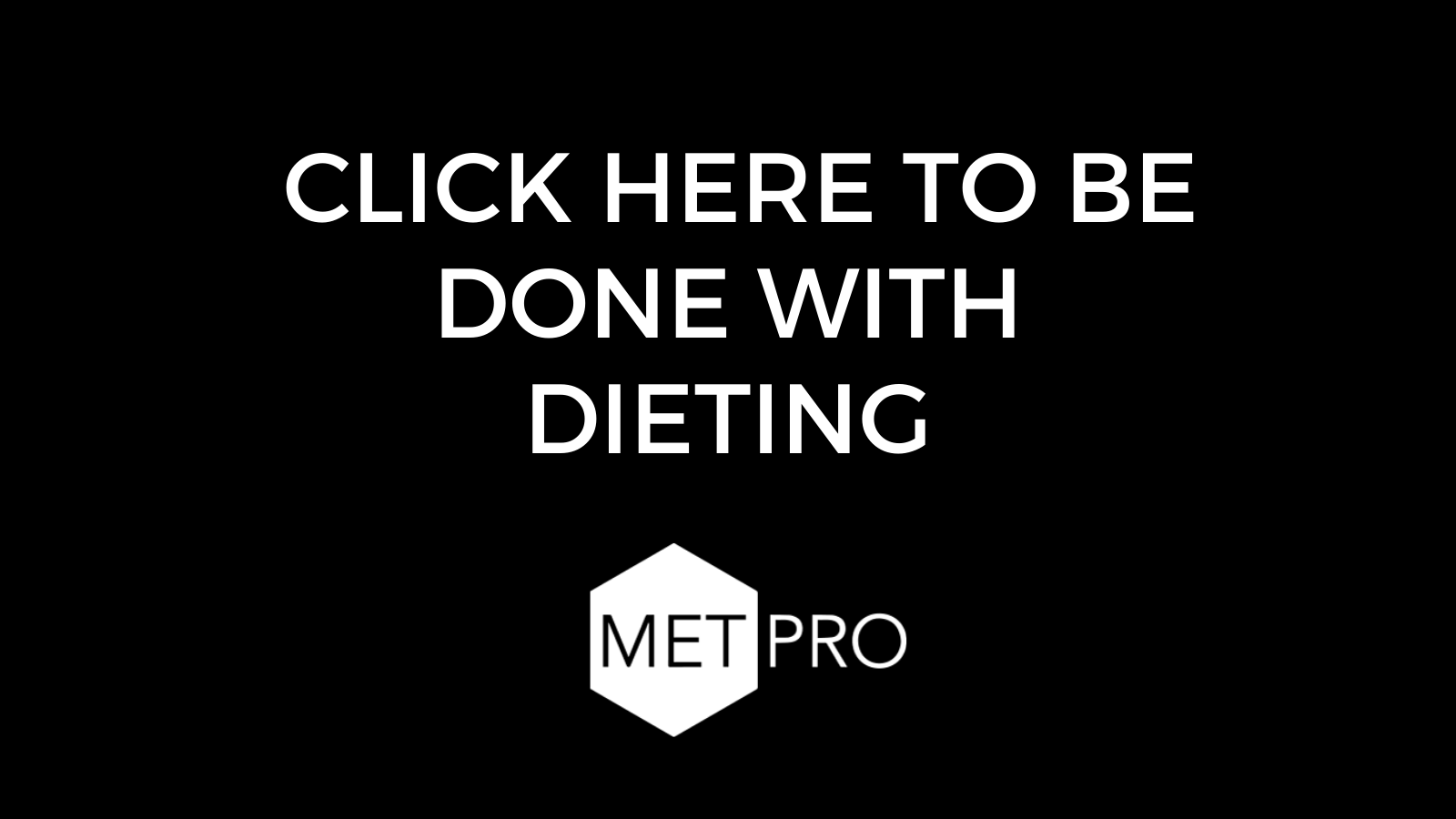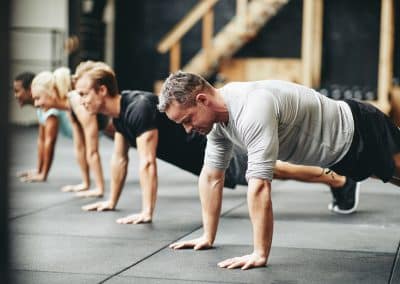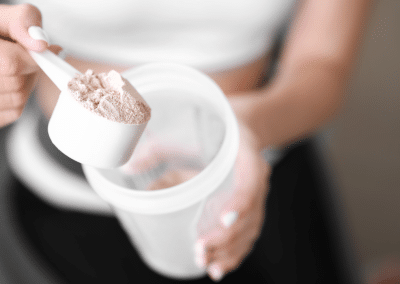I am joined by Cohost of the Marathon Training Academy Podcast, Angie Spencer. We will be discussing Angie's MetPro journey, as well as her love of marathons. Thank you so much for joining me, Angie.
Thank you so much for having me, Crystal. It's an honor to be on the show.
We are honored to have you. You have a podcast all about running but how long have you been a runner?
I started dabbling in running when I was a teenager. As a teenage girl, I thought that I need to lose weight. Running seemed the fastest method to get there. I wasn't doing it for a very deep reason or something that would keep me going. I dabbled in and out of it in my early twenties, as I was finishing up college, working and starting a family and things like that. I didn't get serious about distance running until my late 20s and ran my first marathon at age 28. I have never looked back since then.
When you decided, “I love this distance,” what was it about the marathon long-distance or longer distance in general that appealed to you versus shorter distances?
There are a huge variety of distances. Probably the 5k distance is the most popular around the world. It's very accessible. With the marathon, it was a puzzle that I'm still trying to figure out honestly. I loved it because it was hard. It was not something that everyone was doing. It required me to dig deep physically, mentally, emotionally and even spiritually. It demanded a lot of me so I feel like it has given back a lot to me as well.
How many marathons have you run since you started running marathons when you were 28?
I have done 62 marathons and 6 ultramarathons.
When you say ultramarathon, there are different distances for ultras also. What distances have those been?
I have done three 50Ks, which is 31.1 miles for those of us who do miles. I've done one 40-miler and two 50-milers.
I was reading on your website that you've also done a marathon in every single state.
I started my journey by running marathons. I started meeting people who were doing amazing things with the marathon distance. I met people who were doing a marathon in every single state. I adopted that as a goal for myself because my husband and I both love to travel. There's something special about getting to run in an area. You see it in a different light than you do in a vehicle. We went to some unusual places that we probably wouldn't have gone to otherwise. It was a special way to celebrate the diversity of the United States and be able to balance running and travel at the same time.
Do you have a favorite state that you went to?
My home state is Montana. I haven't lived there in many years but I was born and raised there. That's probably the state that's closest to my heart. We got to go to Alaska, which is an amazing state. I still feel like I haven't explored it very thoroughly. That was an amazing one. Hawaii was pretty special as well. I saved Hawaii for my 50th state and did it in January of 2020. It was right before the pandemic lockdown. I feel blessed that I was able to finish that 50-state journey right before the whole world shut down for a while.
Between the travel, the running itself and the training for the travel, how do you have time to do anything else?
Honestly, I live a pretty boring life. I'm not one of those people who has nightlife. I get up early, get the kids off to school and do a workout. I work from home which makes it convenient. I have more of a flexible schedule which not everyone has. I can fit my workouts in between the projects that I need to get done. I'm in bed by 9:00 every night.
Me too but I don't run a marathon all the time.
You can't have it all at once. If you prioritize things, balance socialization, sleep, running, strength training, family and all that stuff, it does work out. I am blessed to have a supportive family. That has helped with this journey.
*It helps that they get to enjoy the travel aspect of it too. Even if they're not running, they get to cheer you on and see amazing places they wouldn't have seen otherwise. *
Kids don't thoroughly appreciate it sometimes. There's a lot of complaining but as they get older, they appreciated it more. They'll look back with fond memories of their childhood and the places they were able to go.
I feel like they're getting more appreciative as they get older but they still have that teenage aspect of not being impressed by anything.
The bottom line is our parents are not cool. I stopped trying there.
You've mentioned strength training. How do you balance strength training with marathon training? There's a lot of running involved. Where do you find the time? How does that work?
I often do two workouts a day. I do most of my workouts in the morning. I schedule my workouts. I put them on the calendar so I know exactly what I'm going to be doing. I tend to do heavier, lower body strength days early in the week so that I'm still not sore for when my long run comes around later in the week. I can do heavier upper body, closer to my long run and things like that. You have to schedule it and be intentional about it but it's very doable.
I am a huge advocate of strength training for runners. Running is a sport where a lot of people get injured. It's often because we only want to run. We don't add in a lot of those accessory training, balance out and have overall strength. As I get older, I especially realize this even more and work with a lot of coaching clients and people that listen to the podcast. I do beat the strength training drum a lot. People probably get sick of it.
I love that you are stressing that to people because it is so important. I've read on multiple occasions that if there's one thing that you can do to keep yourself mobile and young as long as possible, it's strength training. Women especially tend to toss that over to the side because they don't want to lift heavy and get bulky.
It's essential especially for women as they get into their late 30s and beyond to be lifting heavy, prioritizing high-intensity interval training, keeping those bones strong and actively fighting against the muscle loss that happens. That carries over into a better experience with perimenopause and beyond. Also, with a person's body composition goals, it's essential. MetPro has been wonderful in that because they emphasize the importance of strength training along a person's journey. I love the workouts in the app. The Wumpus rompers are my favorite because I'm a lower-body person.
I was recommending that to somebody. I love saying it, first of all, the Wumpus rompers. That's fun. Second of all, there are a lot of good moves in there that all work together well. That's my favorite. What was running like prior to MetPro versus after you started MetPro?
I had decades of doing marathons. Everything was going great. I had qualified for Boston, was able to run the Boston marathon, was achieving a lot of my goals and then started dealing with a hormonal imbalance. As a result of that, I gained 40 pounds, even though I was keeping up with my running and normal exercise schedule and trying the best that I knew how to eat a healthy, balanced diet. Still, I had this hormonal imbalance, which is common as women get into their late 30s.
I worked with my doctor. It was a long process of getting things rebalanced. Even after I was back at a normal hormonal balance, I was stuck with about 35 pounds of unwanted fat. For anyone who has struggled with their weight through the years, it's hard to run when you're carrying extra weight. It's hard to feel good about yourself and have the energy that you want to show up with in the world. I was introduced to MetPro in November of 2018. My marathons had been rough for a few years.
I had taken a whole year off from doing races to try to get healthy and rebalanced. I tried a lot of things to lose weight on my own and pretty much ran into a brick wall every single time. When the opportunity to work with MetPro came up, I thought, “This is not going to work. I'm extremely skeptical but I'm desperate. I will try it and give my best effort. Here goes nothing.” That was my attitude going into it.
I was blown away by the results that I had. It exceeded my very low expectations. I was able to lose 20 pounds of fat in the first 5 or 6 months. That made me feel amazing from an energy standpoint. My clothes fit better. I had to buy new clothes. My running was a lot more effortless. I started to notice my marathon times come down as I lost that unneeded fat and got stronger. I was able to finally run a sub-4 marathon again after about 6 months on MetPro.
I was able to qualify for Boston again. After over a year of doing MetPro, I ran my fastest marathon at the age of 41. I ran a 3-hour, 19-minute marathon. It was incredible. It was one of those things once you start making progress and figure out what is working for your body. You're dialing in your nutrition, workouts and things like that. All the pieces were coming together for me. I am so grateful for MetPro and the journey with my coach because it has been life-changing for me.
The thing that resonated with me the most is that you're fastest at age 41. Many women think, “If I'm 40 yet, what's the point of exercising anymore?” I hear that from people. It's not too late to start exercising. Not that you were starting but look at the progress that you made. That's phenomenal and so inspiring.
It has reset my framework for what is possible after the age of 40. I feel better than I did in my 20s and 30s from an energy standpoint and the way my body is performing. My strength is better. I like to encourage women to start where they’re at. Everyone has to start somewhere but you can still make awesome progress, feel good, look good and reach your goals no matter what age you are. That's highly encouraging because MetPro is so individualized. It's right there with you every step of the way.
How do you work MetPro in with your training schedule?
Usually, my coach and I talk about what my upcoming races and my training are going to be looking like so we have an idea of when we're going to do an up adjust. I'll have more food available for those long runs and races. We strategically do the down adjust or the cuts so that it doesn't affect my energy or performance. That was one thing that was missing before. I didn't have that contrast in my diet. My body got used to what it was doing. I was like, “I’m not changing anything.” I was demanding a lot out of it but I wasn't fueling it appropriately and giving it the nutrition to be able to perform better and also get leaner. That important.
I'm sure that affected your recovery as well.
As a person does get to be a master's runner over age 40, you do have to pay a lot more attention to your recovery. It's so essential to be giving your body the nutrition that it needs. You should be getting that rest and limiting things like alcohol, sugar and fried foods that don't do us any favors. Sadly, it's important to put all those pieces together. It's not like you have to be 100% perfect to make progress on MetPro. Returning from a week-long vacation in Mexico, I was not perfect the whole time I was there. I enjoyed some extras that I don't normally do. I can still feel good and jump right back in 100% when I get back.
I love hearing that you had fun, could still go on vacation, be in that vacation mindset but not feel like you did damage or when you got back, you feel tired.
We've all felt it.
The longer I do MetPro, the more that I do feel that way whenever I eat unexpected things. If I have frozen custard, which is one of my favorite things on the planet, I always feel like it's not as exciting to me as it used to be somehow. I feel like I have this lead ball in my stomach afterwards. It's not worth it anymore.
Let someone else get it and then have 2 or 3 bites because those first 3 bites are the best.
I am so impressed that you have been recording Marathon Training Academy for many years. Congratulations. That is an amazing feat. There are only a few podcasts that have been around that long before other people were using the word podcast. People start podcasts a dime a dozen but back then, that was not the case. How has it evolved over the years though?
When we first started in February of 2010, I didn't know what a podcast was. My husband, Trevor, who had the vision for doing it, had to talk me into it because he wanted to do a show about marathon training. At the time, I had only run two marathons. I felt like I was very far from being an expert or even having a handle on it. I was pregnant with our third child. My husband, Trevor, who wanted to do the podcast, wasn't even a runner.
I was like, “There's a disconnect here because I'm not going to be able to do all the talking. People need to hear from someone new to running. If you're not even a runner, how are you going to be adding to this conversation?” One of my conditions if we're going to start this podcast is that he had to start running. Part of the early journey was him starting to run. He started with 1-minute walking and 1-minute running intervals, built up, eventually did a half marathon and a full marathon and has continued from there.
A lot of people related to his journey of a person who hated to run and learning to love something that he previously hated. I was more of a type A, goal-oriented, driven runner who was always wanting to take on bigger challenges and things like that. A lot of listeners related to me as well. We've had some loyal listeners from the beginning and new listeners all along the way. We're thankful for the audience that we have.
Is there anything else that you would like to make sure our readers know about your journey or marathons?
If you've ever thought about becoming a long-distance runner or doing a marathon, it's a wonderful time to start. Don't ever think that you're too old or out of shape. You have to go through the process of building up that running base and challenging yourself. You never know where long-distance running is going to take you both physically and metaphorically through life.
It opens up a lot of opportunities and experiences for people. It teaches them stuff about themselves. It's good for clearing the mind and everything. I always encourage people that no matter how old they are, get started. Do your research so that you do it safely. Try to enjoy the journey. Don't ever think that you're too old for something. There are no limits as far as what you're capable of if you are willing to put in the work and challenge yourself.
If people want to reach out to you with questions, where can they find you?
The best place to go is MarathonTrainingAcademy.com. That's our website. We've got a contact page on there. People can shoot us an email if they have questions or comments. We have coaching over there and virtual challenges that we do a ton of articles and information for people who are wanting to get started. We're on most of the socials @MarathonAcademy.
Thank you. Angie, I appreciate your time. Readers, that's all for this episode. You can find all of the MetPro method episodes anywhere you get shows or MetPro.co/podcast. Please be sure to follow the show, rate and review. That lets other people know what they can expect from the show. You can also learn more about MetPro at MetPro.co.






